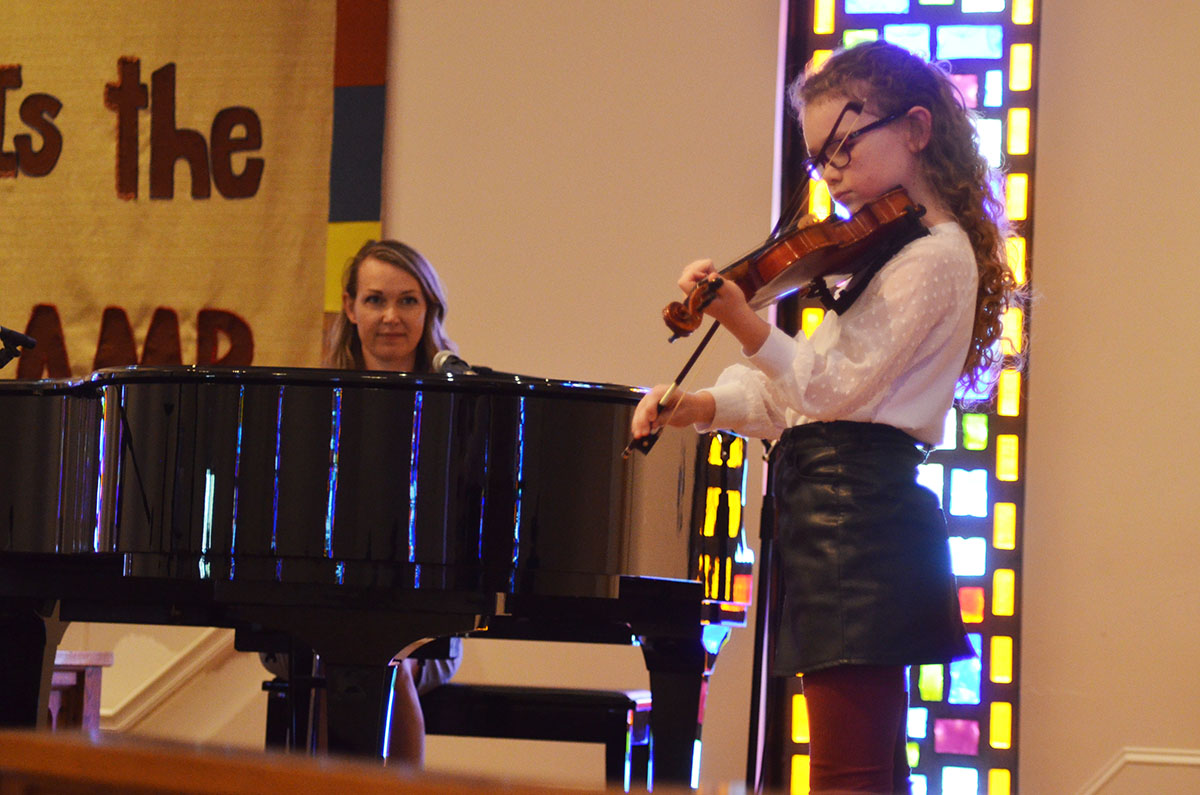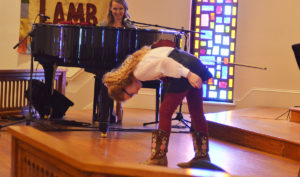 April 24, 2024–‘Tis the season for that unsettling rite of spring that comes to all multi-generational households: the music recital.
April 24, 2024–‘Tis the season for that unsettling rite of spring that comes to all multi-generational households: the music recital.
To this day, I remember my first piano recital at age 8. It was in the Methodist church basement in my small hometown. I squirmed in my metal folding chair, hair oiled, freckles polished, and bow tie efficiently restricting my oxygen flow. When Mr. Gardener called my name, I was terrified. I took the long long long walk up the aisle to sit at that unfamiliar piano, and somehow plowed through my song–The Wise Old Owl. I can still play that song from memory, six decades later.
I now know that my first recital was not the most terrifying performance experience in my life. No, it would be topped in sheer terror many years later by being the parent of kids who have recitals.
For years my wife and I watched our children solo in dance, singing, piano, and violin. Even after four children, it never got easier.
Looking around the same Methodist church in a different small town, you could always tell whose kid was on stage. They were the couple that strained forward in their seats, neck veins bulging, cheeks flushed, and fingers turning white from clutching their thighs.
The best outcome for these parents was having their prodigy make it through the entire song without missing more than three notes. The absolute nightmare was–the pregnant pause. That is when the earnest student–who has spent many hours memorizing the piece–freezes up. It happens at least once at every recital. Ditty-ditty-dum-dum they go along, then… silence. Silence in a church full of people is like darkness in a cave–it becomes a living, menacing spectre. Parents hold their breath, grandpa wakes up, and the music teacher tries to discreetly guide the student to the next note using facial tics.
The unwitting star of the pause is the student. The musical naif, unaware of the waves of anguish she has set off, stares into the rafters, in expectation that the next note will show its face from the choir loft. Slowly, the dam breaks, fingers move, the piece continues. The recital is saved.
I have a confession. As I am now sitting in those same metal folding chairs listening to my grandchildren perform, I have come around to understanding the value of the recital. Dare I say, the experience has become enjoyable. Maybe because I now realize no one is judging me on whether the kid hits that high Bb or trips over the quarter-rest. We’ve all ridden in that rodeo, and we can finally accept the performance for what it is–a performance.
 The recital still is a rite of passage. Playing an instrument in front of a sympathetic audience builds confidence and increases competence. It is important; it is necessary. And every child will come to realize that.
The recital still is a rite of passage. Playing an instrument in front of a sympathetic audience builds confidence and increases competence. It is important; it is necessary. And every child will come to realize that.
Six decades later.